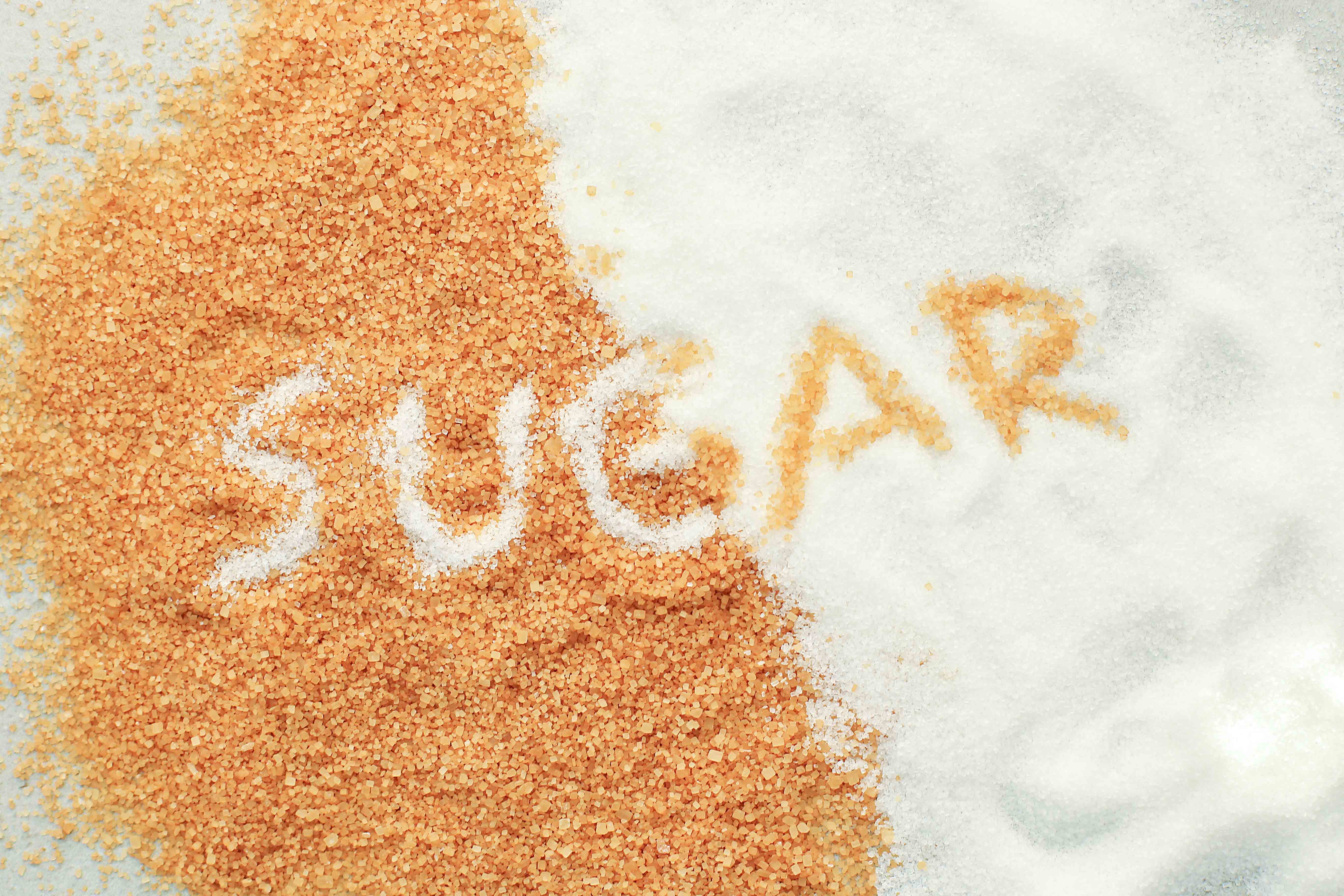

Sugar. It tastes so good, but it's so bad for us...Right?
Sugar. It tastes so good, but it's so bad for us, right? As usual, there's a little more to it than that. When we talk about sugar, we are generally referring to added sugar, not natural sugars. Natural sugars are found in fruits, unprocessed foods, and some dairy products. In the case of fruit, the sugar is usually bound up with fiber which means that your body has to work harder to get at the sugar, and there isn’t a dramatic spike in blood sugar. Foods with natural sugar also usually contain important vitamins, minerals, antioxidants, etc that are good for us. Added sugar on the other hand, is added to processed foods to either improve flavor or to improve storage or stability. Added sugar is just calories and doesn’t provide any health benefits. It may be surprising, but added sugar is found in almost 70% of the foods you find in the grocery store. We expect to find it in desserts and sodas, but it also hides in bread, pasta sauce, and lots of other things that aren’t sweet. Low fat and fat-free foods also often have sugars added to improve flavor. Fortunately, it is easier to identify added sugars. Since 2018, food labels are required to list total sugars and added sugars to make it easier to recognize added sugars.
Keep in mind that we do need some sugar. It is a source of energy for our brains and other cells in the body. The problem is when we consume too much of the wrong kind of sugar. The list of health risks associated with added sugar is very long. It includes obesity and tooth decay, as well as type 2 diabetes - which can affect the kidneys, eyes, blood vessels, nerves, heart, GI tract, and brain. Added sugar can also cause chronic inflammation, which is when the immune system damages the body’s own cells. Depression, anxiety and other mood disorders, fatigue and insomnia, diarrhea/constipation, reflux, weight gain, and frequent infections are all symptoms of chronic inflammation. Excess sugar consumption can also increase the risk of heart disease, breast/colon cancer, acne, cognitive impairment, and dementia.

How much is too much? There are two organizations that have weighed in on this subject. The US Dietary Guidelines for Americans recommend less than 10% of your calories from added sugar. For someone who burns 2000 calories per day, that is 200 calories, or 50 grams of added sugar. The American Heart Association (AHA) recommends a max of 25g (or 6 tsp) for women and 36g (9 tsp) for men. Why the difference? The US Dietary guidelines are reviewed every 5 years, and the current 10% recommendation is for 2020-2025. In October 2020, the US Dietary Guidelines Advisory Committee recommended a future decrease to 6%, which would bring it closer in line with the AHA. The AHA says no more than 50% of discretionary calories should come from added sugar. Discretionary calories are the difference between the number of calories needed to meet your nutrient requirements and the calories needed to maintain a healthy weight. In general, for men that is 36g/day, women 25g/day. Their goal is to achieve/maintain healthy weight, meet nutritional goals and reduce cardiovascular risk. When deciding which of the two guidelines to follow, consider your health, risk factors and priorities. If you are generally healthy and have no family history, you could probably opt for the higher limit. However, if you already have diabetes, heart disease or other medical conditions, you may want to choose the AHA guidelines.
It can sometimes be overwhelming to make big changes, especially in a case where added sugar is found in so many foods. An elimination diet can be a good way to get started. For one or two weeks, cut out all added sugar. Reading labels and planning ahead can make this easier. After that, you can maintain at whichever amount you have chosen. For others, cutting back slowly may be preferable. Replacing high sugar foods and drinks with lower/no sugar options can make a big impact. Sugary drinks like soda and juice can be replaced with water, or if that becomes boring, try flavored seltzers, infused water, or flavor drops. Cutting back on desserts is another way to reduce added sugar. Eating fruit (especially when in season), dark chocolate, and smaller portion sizes can keep added sugar intake low. And if you are going to indulge, savor it! Eat slowly and enjoy each bite.
Here are the takeaways:
• The type of sugar is important, natural is always best.
• Cut back, don’t cut out. Some sugar is necessary but moderation is key, like everything else. Who wants to never have a piece of birthday cake? A cinnamon roll? A soda? Life is too short to eliminate all those things.
• Baby steps are ok, but so is an all-out elimination diet - there is no one right answer. We are all unique in how we approach change, and a unique plan is needed to help us be successful.
• It can be challenging, especially if you are doing it but your family or significant other is not, but it's not impossible!
• Read labels and be aware of what you put in your mouth.
• Finally and most importantly, be kind to yourself. Making positive lifestyle changes requires a long game approach. Life is too short to deprive yourself of everything you enjoy. If you have a bad day (or couple of days), it’s okay. Acknowledge it, then get back on track.
She now lives in Madison and is the lead pharmacist at Waunakee Hometown Pharmacy in Waunakee, WI. Along with spending time with her husband, Jeff, and Basset Hound, Charlie, Heather enjoys biking, playing tennis, photography, gardening and travel.
Heather is especially passionate about helping people achieve their health and wellness goals through promotion of healthy lifestyles and appropriate use of medication and supplements.


.jpg?ext=.jpg)





Comments